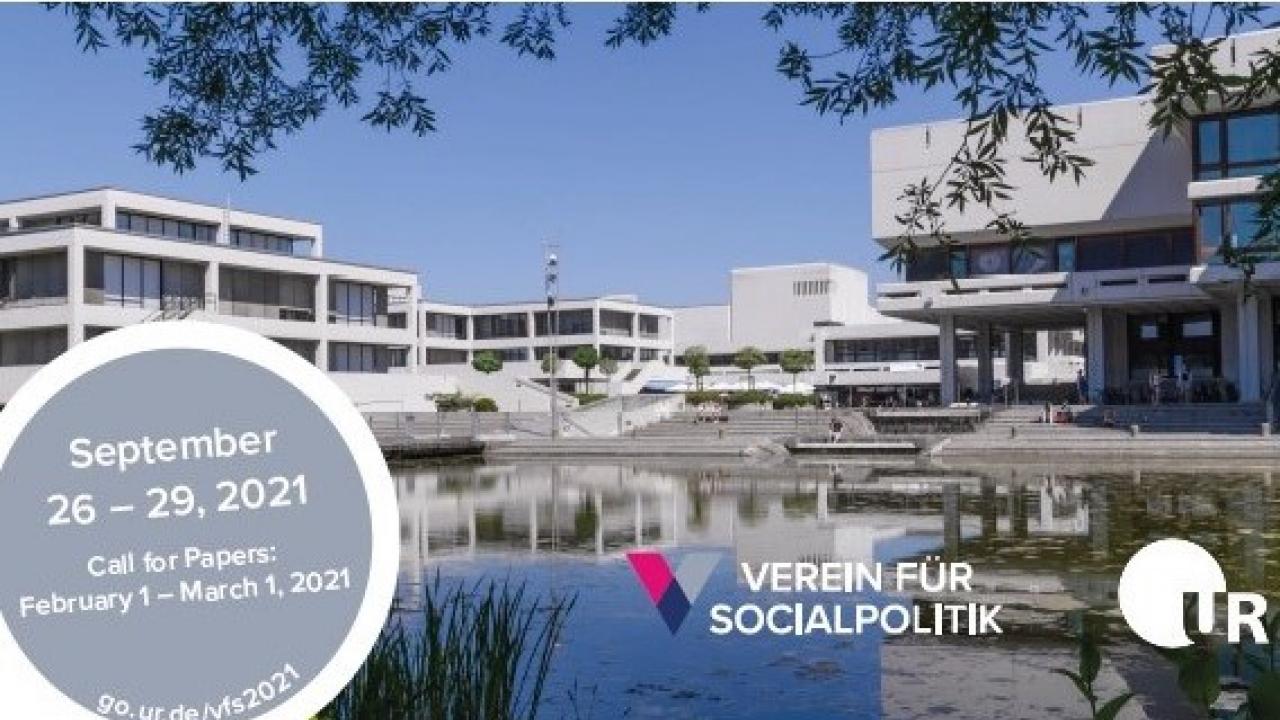VfS-Annual Conference "Climate Economics" - Call for Papers
The Annual Conference consists of a core conference with invited lectures concerning “Climate Economics” and of an Open Meeting with mixed topics.

VfS-Jahrestagung 2021 "Climate Economics"
The Annual Conference of the Verein für Socialpolitik (September 26 - 29, 2021) consists of a core conference with invited lectures concerning “Climate Economics” and of an Open Meeting with mixed topics. The VfS Annual Conference 2021 will take place at the University of Regensburg.
Presentations and Organised Sessions for the Open Meeting may be submitted from all fields of economics. The submissions are evaluated by anonymous referees and subsequently selected by the Programme Committee. The decision of acceptance may be expected by the end of May 2021.
Core Conference "Climate Economics": Global climate change is one of the biggest challenges of our time. Slowing down climate change and adapting to its inevitable consequences will require enormous investments into new technologies and infrastructures for many decades to come. At the political level, effective climate policy requires collective action by sovereign states and a fair distribution of the costs among countries with very different levels of economic development. This year’s core conference highlights that economics is essential for understanding these problems as well as for analyzing and evaluating possible solutions.
Three keynotes by leading international scholars will give an overview of current economic research on climate policy design. William Nordhaus (Yale University) was awarded the 2018 Nobel Prize for integrating climate change into long-run macroeconomic analysis. He will talk about the failed architecture of current international agreements and present alternative designs. Much of the growth in future energy consumption is projected to come from non-OECD countries. Catherine Wolfram (University of California at Berkeley) will explain how technologies and policies designed to mitigate greenhouse gas emissions will work in the context of the energy systems in these markets. Complementary to reducing emissions are policies that regulate the extraction of fossil fuels and protect natural carbon sinks. Bård Harstad (University of Oslo) will argue that such supply-side policies have many advantages and, if designed optimally, can help to conserve tropical forests as well as coal. A panel discussion with politicians, researchers, and stakeholders will focus on the economic implications of climate neutrality objectives stipulated in the European Green Deal.
Please click here to get to the Submission Portal.
The deadline for the submission of contributions is March 1, 2021.